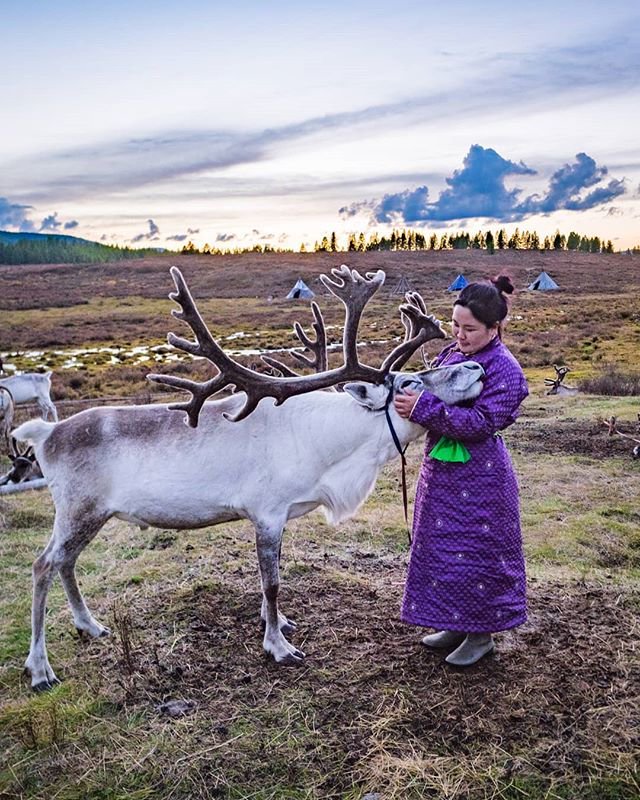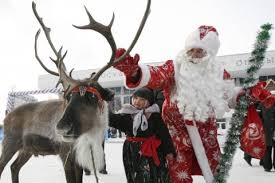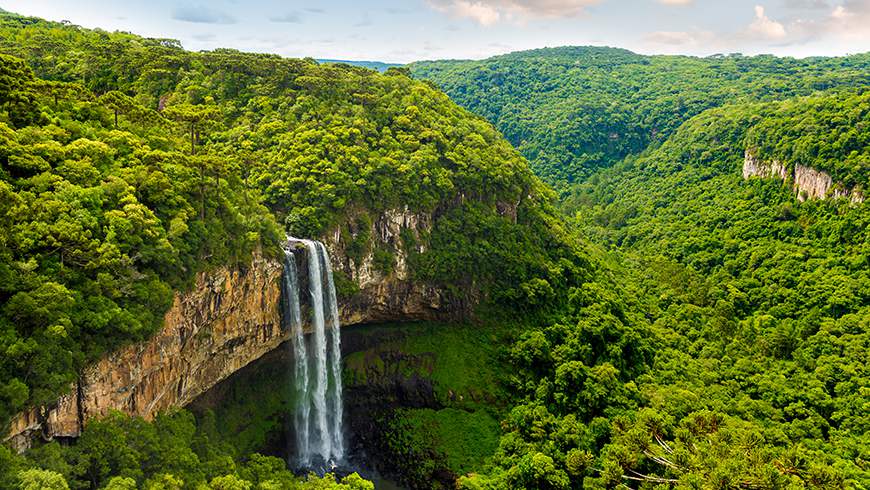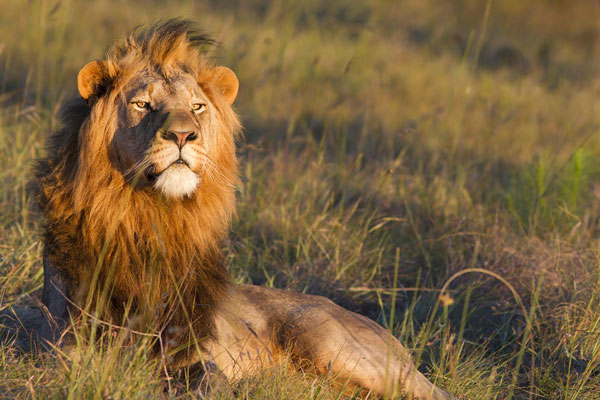
In Mongolia , Protection arrangements compromise indigenous reindeer herders.

Guidelines set up to secure jeopardized species have hurt individuals who rely upon nature.
Somewhere down in the sub-Arctic boreal timberland of far northern Mongolia experience an indigenous clan who are among the world’s littlest ethnic minorities and last reindeer crowding travelers. The Tsaatan, as they’re known, have been struck in the course of the only remaining century by political and financial stuns, developing asset and ecological weights, and critical effects of environmental change. Be that as it may, today they’re additionally confronting another risk which they feel might be similarly as large a danger as any of these to their endurance: the preservation strategies of the Mongolian government.
This June, both of us — ecological students of history who work on environmental change and protection — went through five days going via air, four-wheel-drive, lastly horseback to arrive at the Tsaatan camps close to Siberia, where the migrants live in teepee-like ortzes, relocating with their reindeer over the boreal woods. Our objective was to observe the late spring relocation to high height pastures, while figuring out how the Tsaatan’s grouping jobs are evolving.
Environmental change is presenting maybe the most generally known dangers to Mongolia’s itinerant societies. In the previous seven decades, normal temperatures in the nation have risen 2.24 degrees C — more than double the worldwide normal. This warming has increased both summer dry spells and outrageous winter conditions, adding to floods of migrant herders relinquishing their crowds and moving to the capital city of Ulaanbataar. In ongoing decades the city has been overpowered by in excess of 600,000 transients, prompting a sharp increment in the consuming of grimy coal and adding to a winding of heightening atmosphere uprooting.
Then, a mining blast has invigorated Mongolia’s economy and extended to great employment opportunities to a portion of the previous migrants, however has additionally intensified carbon contamination, urban relocation and weight on environments.
With these anxieties, what we found from the Tsaatan shocked us. While they are worried about environmental change and mining, they disclosed to us they accept misinformed protection arrangements have turned into an increasingly genuine risk to their roaming society.
Exceptional Protected Areas
The Tsaatan live a long way from streets, offering the boreal woods to imperiled Siberian ibex, argali sheep, red deer and musk deer. Diggers started abusing the district for gold, jade and uranium during the 1990s, not long after the breakdown of the Soviet Union. This added to an expansion in untamed life poaching and debasement of the high snow capped knolls, mountains and streams that the Tsaatan depend on and see as holy.

In light of a solicitation from the Tsaatan, in 2011 the Mongolian government set up a Special Protected Area and dropped every one of the 44 mining licenses in the district. Be that as it may, the administration additionally went further: worried by poaching and living space misfortune, it wiped out chasing and angling also, and barred reindeer from a large portion of the zone.
Those progressions hugy affected the Tsaatan.
Reindeer are a tamed subspecies of caribou (Rangifer tarandus), and the Tsaatan are the southernmost reindeer-grouping individuals on the planet. Today, around 250 Tsaatan group around 2,000 reindeer. But instead than eating their reindeer, as other reindeer herders do, the Tsaatan milk them, ride them and use them as pack creatures.
For centuries, Tsaatan travelers moved with their family groups up to 10 times each year, every now and again crossing what turned into the outskirt among Mongolia and Russia. During our visit to the district, Gombo, a Tsaatan senior, revealed to us that when Stalin picked up power in what was then the Soviet Union, numerous Tsaatan on the Soviet side of the outskirt fled to Mongolia, dreading they would be persuasively settled and acclimatized. However, this likewise cut them off from a lot of their customary land.
As Gombo let us know, until 1960 the Tsaatan in Mongolia were individuals without a state, unrecognized by the legislature as lawful inhabitants. At the point when they inevitably were conceded citizenship, some started to settle, while others kept on moving with their reindeer, acquiring a pay from reindeer aggregates. A portion of the travelers enhanced their salary by working for the Mongolian government, chasing sable whose pelts would be traded to the Soviet Union.
People’s job in preservation
Zaya, another herder, disclosed to us that human wellbeing is enduring too, as key supplements from wild meat, for example, moose and deer are lost. To fill the hole, some Tsaatan started eating their reindeer, a training that was an abomination to most.
Confinements on access to fields have had considerably more prominent effects. Rather than continuous occasional movements, the travelers presently are permitted just four, prompting overgrazing and more unfortunate reindeer wellbeing. Bambag, a reindeer herder who likewise went about as our guide, let us know “the administration now orders us to move to certain places. People don’t get to decide what’s best for our reindeer. So that’s difficult for us.”
Network individuals additionally sharply griped about the manners in which that nearby officers implemented the Special Protected Area guidelines — following their developments with trail cameras, fining them, constraining them to make a trip for quite a long time to the town to look for consent to move their groups, and detaining anybody discovered chasing. There is no place that they can escape from the eyes of the State, Zaya let us know.
People’ve come to accept that continuing traveling reindeer herders in Mongolia while additionally ensuring imperiled natural life requires the administration reexamine preservation arrangements that avoid human networks and jobs from secured zones. Reindeer over the north have been key to human societies for centuries. Today, they likewise help we all moderate environmental change, in light of the fact that their brushing decreases heat-engrossing dim ground spread in the winters.
The Mongolian government is endeavoring to secure imperiled untamed life, however the Tsaatan migrants demand their reindeer culture is similarly jeopardized — and significant. Whenever counseled as equivalents, they and their reindeer can help continue the boreal backwoods and the worldwide atmosphere.
Terence Jobs is perhaps best known, however, as the best author of the books and news as well. Along with his wife he’s also the screenwriter. He has more than 3 years experience in writing skill. Now he works as a author on Medic Insider website which is related to the latest health and wellness news.
Disclaimer: The views, suggestions, and opinions expressed here are the sole responsibility of the experts. No Weekly Central USA journalist was involved in the writing and production of this article.



